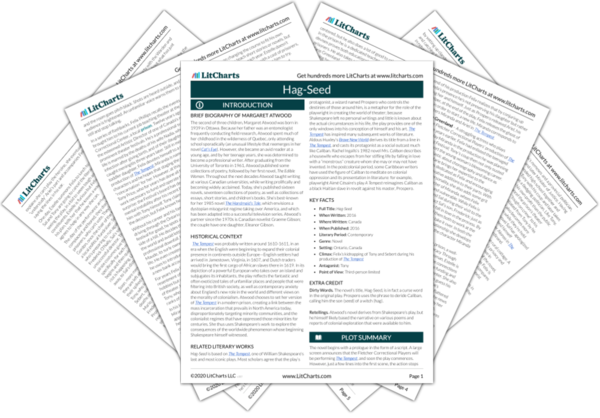Describing theater with the oxymoron “true illusion,” Felix expresses the uneasy mixture of fantasy and reality that takes place in his staged performances. He also foreshadows the fact that his final production of
The Tempest will both create illusions that trick the visiting politicians, and cause them to reveal their true and villainous selves.
